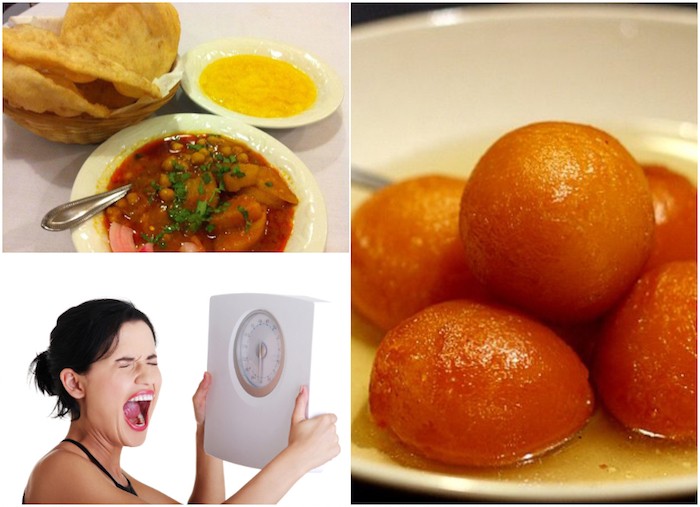In most Indian households, dinner is considered as the most important meal of the day, as it is seen as a time for families to sit down together, share their experiences, and bond over a meal. Dinner is also a more elaborate meal compared to breakfast or lunch. Apart from that, for most individuals, dinner is when they find the opportunity to chill and unwind after a long and stressful day at work. So, dinner, being a time of relaxation and winding down after a long day, can become a vulnerable period for emotional eating. In such situations, people may turn to food to comfort themselves or seek pleasure, leading to overeating because they let the guards down and often go for seconds. This practice of going back for seconds can lead to overeating, creating a calorie surplus. Calorie surplus refers to a situation where an individual consumes more calories than their body needs for maintenance and energy expenditure. When someone consistently consumes more calories than their body requires, the excess energy is stored as body fat and would lead to weight gain over time. That’s why it becomes essential to find effective ways to stop yourself from going for seconds, especially during dinner time. In this post, we list out 5 Ways To Stop Yourself From Going For Seconds After Dinner.


1. Don’t Save All your Calories For Dinner:
Being on the wrong kind of diet can keep an individual hungry through the day, and during dinner time, may lead to hogging on all food available, without considering portion sizes or dietary needs. Throughout the day, individuals may have skipped meals, leading to a build-up of hunger by dinnertime. This increased hunger can make it extremely challenging to practice portion control, causing people to consume larger quantities of food. It’s a myth that you need to starve to lose weight without taking into consideration body’s energy requirements. Eat at regular intervals through the day, and eat enough, to help nourish the body, and also to avoid overeating at dinner when the metabolism is at the lowest and the body is slowing down in preparation for rest.
2. Refrain From Eating in Front of Television or While Using Phone:
Distractions such as watching TV, using electronic devices, or engaging in conversations during dinner time can divert attention away from the act of eating. When people are distracted and not mindful, they would not feel fuller even with enough food in the first serving and may go for seconds even without realizing. Eat your food in peace, without distractions, and being completely aware of its quality and quantity.

3. Don’t Keep Extra Food on the Table:
Keep away all the food after serving yourself the first time! An effective strategy to avoid overeating is to keep all the remaining food away after serving yourself the first time (we would recommend putting away the extra food in the refrigerator). By removing the temptation of readily available food on the table, you would be able to create a physical barrier and give enough time to evaluate whether you are actually hungry and would need more food from additional servings. This simple act of putting away the remaining food can help break the cycle of automatic refilling of your plate and overeating.
4. Eat Slowly, Chew Food Properly:
We all know that chewing thoroughly helps to break down the food into smaller particles and thus reduce the burden on your stomach, leading to more efficient digestion. This simple act encourages you to take your time and prevents rushing through your meal. Eating slowly is important because it takes approximately 20 minutes for your brain to receive signals of fullness and satiety from your digestive system. So, eat your food in peace, chew slowly, savouring each bite. Also read: “18 Awesome Tips to Create Calorie Deficit to Lose Weight.”
5. Eat From Smaller Plates:
Larger plates can create an optical illusion that makes the portion size appear smaller. As a result, people may feel the need to fill up the entire plate, leading to larger portions. Larger plates and serving dishes can contribute to overeating as people may feel inclined to finish what is on their plate, even if it exceeds their actual hunger level and satiety cues. Swap your large meal plate with a smaller one because eating from a smaller plate can help prevent the tendency to go for seconds by creating an optical illusion that makes the portion appear larger.
Summing up, do remember that calorie deficit is important to achieve weight loss, where you consume fewer calories than you burn. So, it’s important to not let the guards down during dinner and stay within calorie limit without compromising on nutrition, and Rati Beauty diet plans help you achieve weight loss keeping your health and nutrition in mind. Download the Rati Beauty app to access all our diet plans.
18 Awesome Tips to Create Calorie Deficit To Lose Weight
15 Study-Based Hacks To Keep Extra Calories Away
Stay connected with us on social media platform for instant update click here to join our Twitter, & Facebook
We are now on Telegram. Click here to join our channel (@TechiUpdate) and stay updated with the latest Technology headlines.
For all the latest Health & Fitness News Click Here
